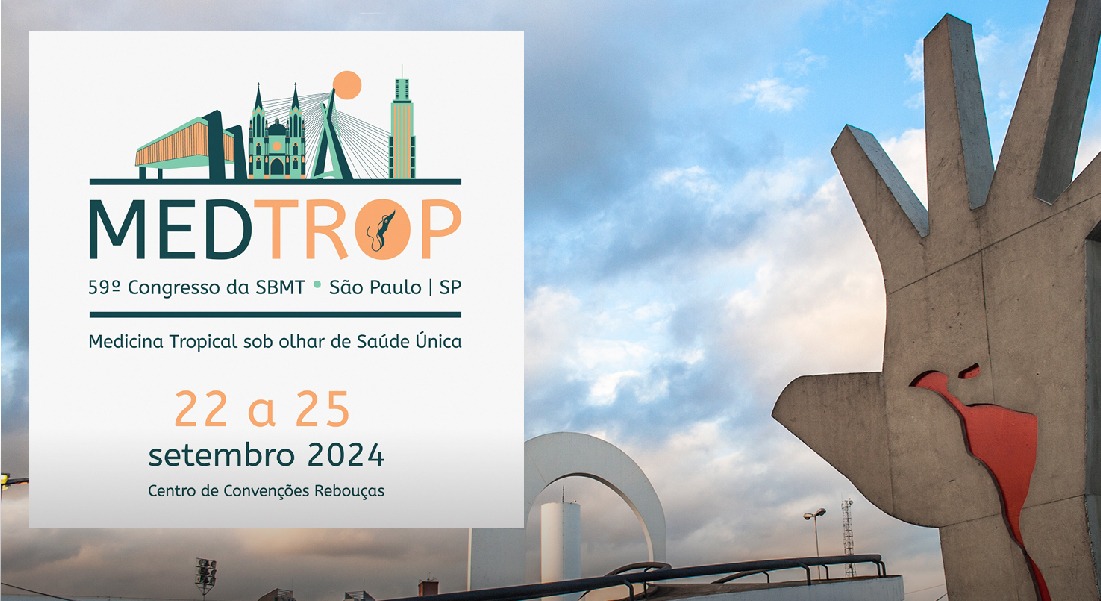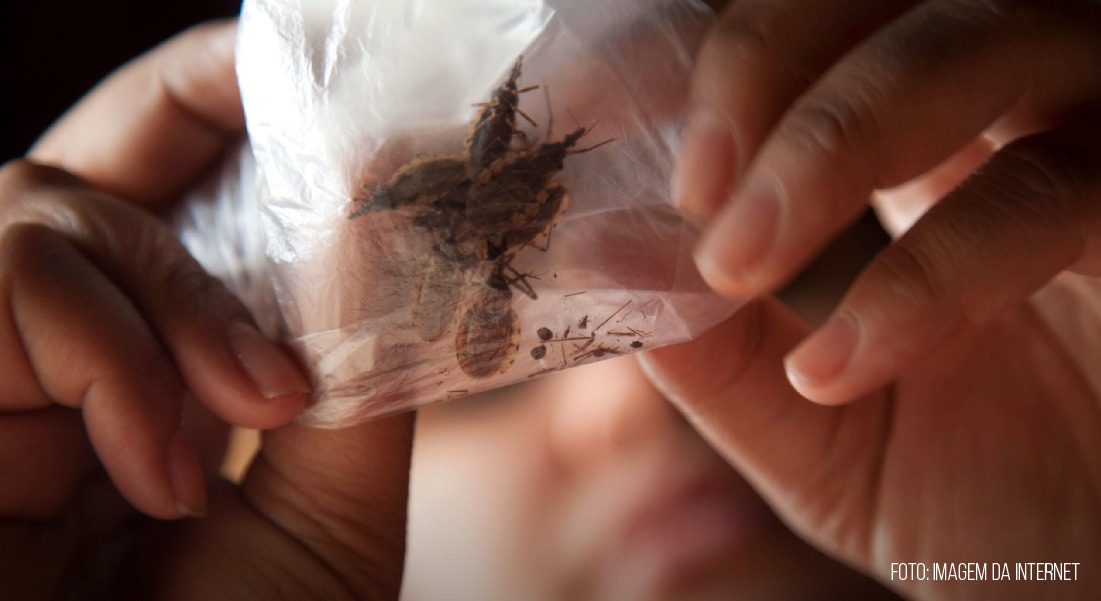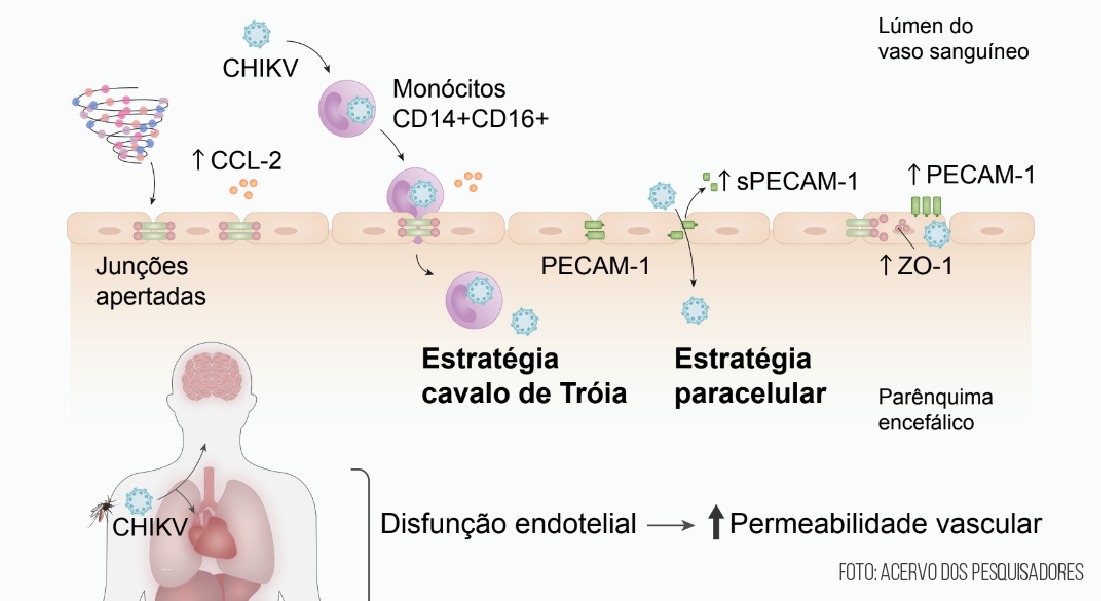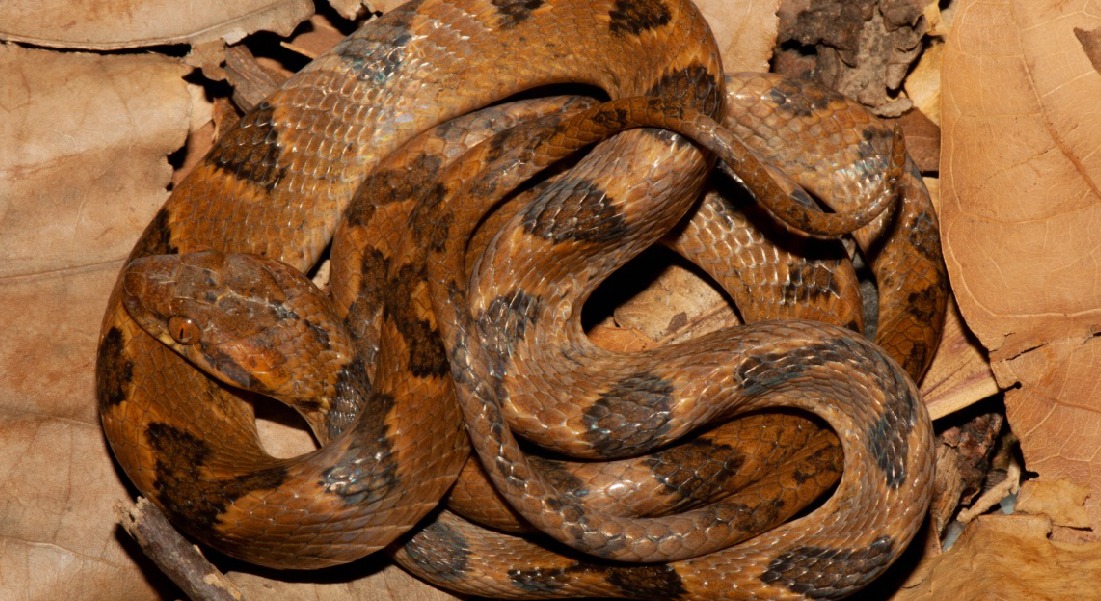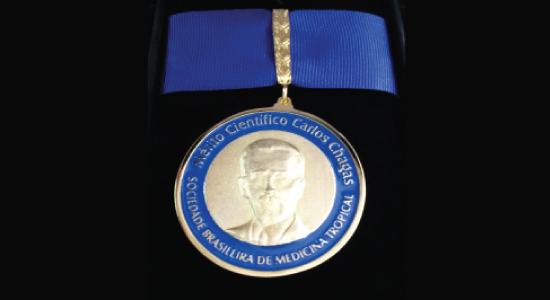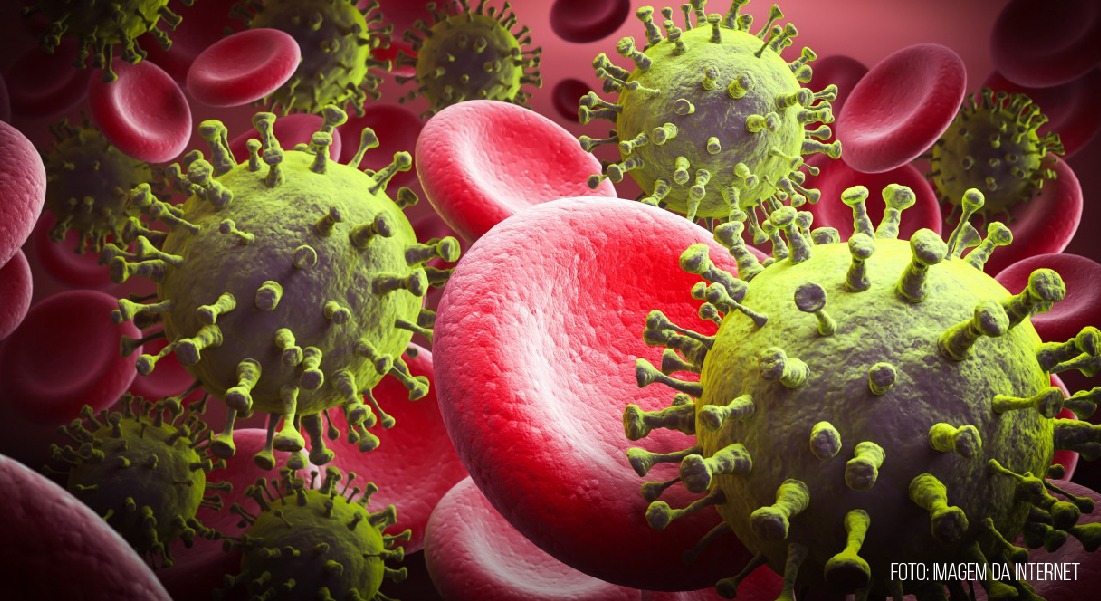
Congresso no Acre prevê inclusão socialCongress in Acre seeks social inclusion
As regiões de fronteira são as menos protegidas social e economicamente.The borders are the least protected region, both socially and economically.
18/03/2014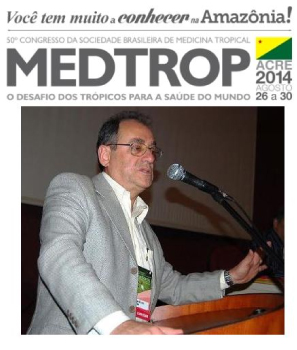
Realizar o evento no extremo oeste do Brasil demonstra preocupação da SBMT em permitir que pessoas da região Norte tenham acesso a mais informação, oportunidade de participar de debates e ouvir grandes pesquisadores
“As regiões de fronteira são as menos protegidas social e economicamente. O Congresso da Sociedade Brasileira de Medicina Tropical (SBMT) no Acre nós dá a oportunidade de aproveitar o local e discutir políticas com os países de fronteira sobre controle e prevenção de doenças de transmissão vetorial”, atenta Dr. Mitermayer Galvão dos Reis, presidente da SBMT e pesquisador da Fiocruz/BA, ao destacar que a escolha do Acre para a realização do 50 Congresso, também visa à inclusão social.
O presidente da SBMT salienta que é muito mais difícil um estudante ou um profissional de saúde do Acre ir para um congresso na região sudeste que o inverso. Ele questiona quem já esteve no Acre e assegura que o evento é, acima de tudo, uma oportunidade de se conhecer outro canto do Brasil. “Realizar o encontro anual da SBMT, no extremo oeste do Brasil, mostra a nossa preocupação em permitir que as pessoas da região Norte tenham acesso a mais informação e a oportunidade de participar de debates e ouvir grandes pesquisadores”, observa Dr. Mitermayer ao afirmar que o evento contará com palestrantes reconhecidos mundialmente, na área de Medicina Tropical, inclusive de universidades norte-americanas, além de participantes de países vizinhos.
Na avaliação do pesquisador, a presença de representantes de países de fronteira no evento, bem como a de outros estados da região Norte do Brasil, favorece o debate sobre as doenças mais presentes nessas localidades e o que pode ser feito para prevenir. “Os vetores que transmitem patologias não sabem o limite dos países e dos estados, por isso é importante discutir sobre enfermidades que correm o risco de entrar em nosso País”, atenta Dr. Mitermayer ao realçar que não adianta o Brasil investir dinheiro na prevenção se não envolver os países vizinhos. Acredita-se que a nova dengue tenha entrado pela Venezuela, lembra. De acordo com ele, são esperados no evento um grande público local, além de participantes oriundos da Bolívia, Venezuela, Peru, entre outros.
Valorizando o conhecimento
Historicamente, os Congressos da SBMT sempre foram realizados no Rio de Janeiro, São Paulo, Minas Gerais, ou em locais com grande apelo turístico, como Bahia e Pernambuco, conforme recorda Dr. Mitermayer. Ele explica que as pessoas sempre acreditaram que não valeria a pena fazer o encontro em outros locais, uma vez que se tem um grande contingente de sócios nesses estados. “Fica muito mais barato, do ponto de vista econômico, fazer o Congresso em uma dessas localidades”, reconhece o presidente da SBMT ao reafirmar que a grande preocupação ao levar o encontro para o Acre é promover a inclusão social.
O presidente da SBMT adianta que o Congresso pretende inclusive atrair estudantes secundaristas e explica que para isso será montada uma exposição pela Dra. Virgínia T. Schall, pesquisadora titular do Centro de Pesquisas René Rachou (Fiocruz/MG) e coordenadora do Laboratório de Educação em Saúde e Ambiente (LEAS). Dr. Mitermayer assinala que é fundamental o maior número possível de pessoas envolvidas com os temas. “Ao pegarmos o mapa do Ministério da Saúde (MS) com as cidades que registram dengue, calculando pelo número de habitantes e fazendo a proporção, veremos que a maioria dos casos está nas cidades de fronteira”, complementa.
Premiação inédita
Além dos prêmios tradicionais aos trabalhos de estudantes e pesquisadores com relevância para Medicina Tropical, nesta edição do Congresso serão premiados também jornalistas e veículo de comunicação. Segundo Dr. Mitermayer, é preciso levar em conta a contribuição da mídia na disseminação de conhecimento e de informação à população. “Os temas são abertos, desde que abordem assuntos de cunho Tropical. Até o final de maio, jornalistas e veículos que tenham matérias com esse viés podem se inscrever ou serem indicados”, esclarece o presidente da SBMT ao ressaltar que, os contemplados serão convidados a participar do Congresso para receber o prêmio e acompanhar de perto as discussões propostas nas atividades do evento, sem custo.

Conducting the event in Brazil’s extreme West shows the BSTM’s concern to allow people from the northern region to have better access to information and the opportunity to take place in debates and listen to great researchers
“The borders are the least protected region, both socially and economically. The Congress of the Brazilian Society of Tropical Medicine (BSTM) in Acre gives us the opportunity to enjoy the place and discuss vector borne diseases control and prevention policies with border countries”, stresses Dr. Mitermayer Galvão dos Reis, BSTM’s president and researcher at Fiocruz/BA, while saying that Acre’s choice to host the 50th Congress also seeks social inclusion.
The BSTM’s president highlights that it is much more difficult for a student or health professional from Acre to join a meeting in the southeast than the opposite. He questions who has already has been in Acre and assures the event is, above all, an opportunity to know Brazil’s other side. “Conducting the BSTM’s annual meeting, in Brazil’s extreme west, expresses our concern to allow people from the North to have access to more information and opportunities to join debates and listen to great researchers”, observes Dr. Mitermayer while affirming the event will gather worldwide renowned speakers, in Tropical Medicine, including from North-American universities, besides participants from neighbor countries.
For the researcher, the presence of border countries representatives in the event, as well as from other states from Northern Brazil, favors the debate about the most present diseases in this region and what can be done to prevent. “The vectors that transmit these diseases to are not aware of states or countries borders, which is why it is important to discuss the diseases at risk of entering our country”, warns Dr. Mitermayer while highlighting there is no point in investing in prevention in Brazil if the neighbor countries are not involved. “It is believed that the new dengue fever may have entered from Venezuela”, reminds. According to him, the event expects a great local audience, besides participants from Bolivia, Venezuela, Peru and others.
Valuing Knowledge
Historically, the BSTM’s events were always conducted in Rio de Janeiro, Sao Paulo, Minas Gerais, or in places with great touristic appeal, as Bahia and Pernambuco, as reminds Dr. Mitermayer. He explains people always believed it would not be worth holding the event in other places, once there is a large number of associates in these states. “It is economically much cheaper to conduct the event in these places”, admits the BSTM’s president while reaffirming the great concern in taking the event to Acre is to promote social inclusion.
The BSTM’s president forwards the event intends to attract secondary students and explains that for this, Dr. Virginia T. Schall, full researcher at the Rene Rachou Research Center (Fiocruz/MG) and coordinator of the Health and Environment Education Laboratory (LEAS) is setting an exhibition. Dr. Mitermayer signs the largest number of people involved with the themes is fundamental. “When looking at the Health Ministry’s map of cities that registered dengue fever cases, and computing the number of inhabitants and the proportion, we will notice most of the cases are in border cities”, complements.
Unique awarding
Besides the traditional awards for student and researcher’s works in Tropical Medicine, this edition will also award journalists and media. According to Dr. Mitermayer, it is important to keep in mind that the media’s contribution disseminating knowledge and information to the population. “The themes are open, since they board Tropical aspect themes. Until the end of May, journalists and media groups with articles in this subject can register or be nominated”, clears the BSTM’s president while highlighting the awarded people will be invited to join the event at no cost to receive the award and closely join the discussions proposed in the event’s activities.…





